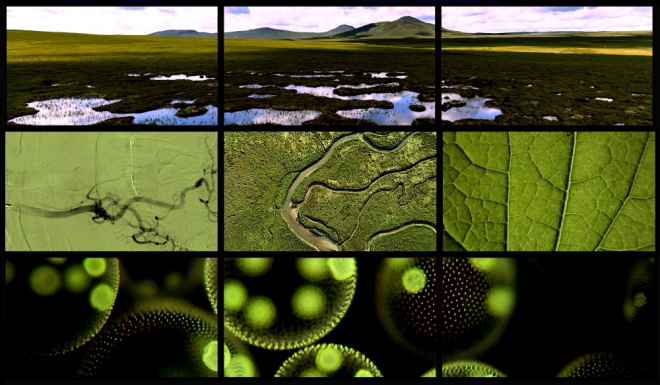Scotland’s Flow Country World Heritage Site to receive premiere performance

The red carpet will be rolled out across Scotland next week for one of the UK’s wildest living landscapes and all its fantastically boggy inhabitants.
The inspirational Flow Country, spanning Caithness and Sutherland, is the only World Heritage Site inscribed by UNESCO specifically for its peatlands and home to the largest blanket peat bog in Europe. An important wildlife habitat storing 400 million tonnes of carbon – more than double the amount in all of Britain’s woodlands – it is vital for both biodiversity conservation and climate change mitigation.
To mark the prestigious recognition, events in Inverness on 28 January and Glasgow at Celtic Connections on 2 February will offer a unique opportunity to see an immersive cinematic and musical experience. The Royal Scottish National Orchestra will perform a world premiere live score alongside a triptych showing of the film When Fish Begin to Crawl, featuring the people of the Flow Country. Bafta-winning Morag McKinnon and Jim Sutherland’s film celebrates the mystery of the beginning of life on earth, evolution, the explosion of biodiversity, and challenges us to face the current climate and nature crises with a message of hope.
Incoming Chair of The Flow Country Partnership, and Head of Operations – North for NatureScot, Graham Neville said:
“This premiere of When Fish Begin to Crawl connects the evolution of life, from the first creatures stepping onto land to the critical shifts we face today due to rising temperatures and human impact. It is a journey reflected in the narrative of The Flow Country itself.
“These events celebrate the Flow Country’s unique ecosystem, the stewardship of generations of farmers and crofters, and the impact of past damaging land use policies. But most importantly, they highlight the message of hope – that working together, we can protect and enhance these wonders of nature. This is crucial as we look to a sustainable future and community-led nature restoration that supports this special place and its people.”
The remarkable ability of the Flow Country’s peatlands to store carbon is only possible if the bogs are kept in healthy condition, but huge areas are degraded and contributing to climate change, rather than reversing it. As The Flow Country Partnership of NatureScot, RSPB Scotland and Highland Council work to futureproof this first mainland UK World Heritage Site inscribed for the global importance of its natural ecosystems, 2025 will see innovative projects spring to life.
The locally-led peatland restoration of the Flow Country Green Finance Initiative supported by Facility for Investment Ready Nature in Scotland (FIRNS) funding will step up to the challenge of stopping nature loss by raising money to restore peatlands at scale, blending public and private finance. It aims to support community development goals, create high quality jobs, carbon investments, ecosystem services, and support circular business models.
Professor of Peatland Science at the University of the Highlands and Islands, Roxane Andersen said:
“UNESCO World Heritage Site designation rightly signals the global importance of the Flow Country in the fight against climate change and biodiversity loss. But just as importantly, it lifts the profile of peatlands globally and can become a catalyst for change, and a model for how peatland and other ecosystems here and elsewhere can be protected, restored and managed responsibly.”
Headline event sponsor NatureScot Peatland ACTION’s Stephen Varwell said:
“The Flow Country's extensive areas of blanket bog habitats provide huge opportunities for peatland restoration – which will bring about benefits to the environment, community and economy of the area.
“Peatland ACTION has supported and funded a number of major peatland restoration projects with local landowners and organisations in the Flow Country over the years. We are proud to continue that support now the area has been recognised as the world’s first peatland UNESCO World Heritage Site – acknowledging the importance of healthy peatlands on a global scale. We look forward to continuing that work with communities and land managers to realise the role that healthy, functioning peatlands can deliver for people and nature.”
RSPB Scotland Area Manager, Kenna Chisholm said:
“RSPB Scotland are delighted to sponsor this premiere of When Fish Begin to Crawl. Highlighting the importance of the Flow Country nationally and globally has been a central theme to our work in this magical area for decades, and we are thrilled about the recent World Heritage Site inscription. We look forward to working with all the many partners across this landscape, including artists such as Jim and Morag, who bring the area to light in many different ways.”
Highland Council Leader, Raymond Bremner said:
“Highland Council are delighted to support this event to mark the inscription of The Flow Country as a World Heritage Site. It marks a momentous achievement for the North Highlands, Scotland, and indeed the world, and Highland Council are proud to have played a part to celebrate the international recognition of this unique and vital landscape.”


